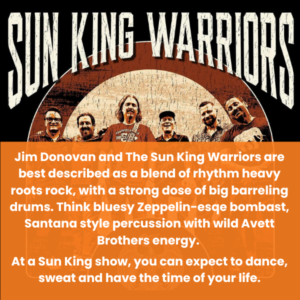Launching a new music project is an exciting venture, and ensuring it’s discovered by your audience is crucial. To help you achieve this, we’ve compiled three essential questions every musician should consider for optimizing their online presence and crafting a compelling music marketing strategy.
1. Who Are You and What Makes Your Music Unique?
 Understanding your unique identity and what sets you apart is the foundation for creating a standout online presence. Reflecting on your musical identity helps ensure that your audience connects with your authenticity and passion.
Understanding your unique identity and what sets you apart is the foundation for creating a standout online presence. Reflecting on your musical identity helps ensure that your audience connects with your authenticity and passion.
- Describe your musical style and genres. Define the essence of your music and what genres you explore. Are you a rock artist with a penchant for blues influences, or do you blend classical orchestration with electronic beats? The more specific you can be about your sound, the better. This specificity helps potential fans find exactly what they’re looking for.
- What is your unique selling proposition (USP)? Highlight what makes your music special and why listeners should tune in. It could be your lyrical storytelling, innovative production techniques, or captivating live performances. Your USP is what makes you memorable in a crowded market. For example, the Western PA band, Jim Donovan and the Sun King Warriors uses this USP in their music marketing strategy to attract the right fans, “Jim Donovan and The Sun King Warriors are best described as a blend of rhythm heavy roots rock, with a strong dose of big barreling drums. Think bluesy Zeppelin-esqe bombast, Santana style percussion with wild Avett Brothers energy. At a Sun King show, you can expect to dance, sweat and have the time of your life.”
- Who is your target audience? Create a detailed profile of your ideal listeners, including demographics and interests. Are your listeners young adults who love indie music festivals, or are they jazz enthusiasts with a taste for sophisticated melodies? Understanding your audience ensures your marketing efforts are directed toward those who are most likely to become loyal fans.
- Why does your audience connect with your music? Understanding the emotional and personal reasons why your listeners enjoy your music can help you craft messages that resonate deeply. Is it the relatable lyrics, the mood your music sets, or the storytelling aspect that captivates them?
- What are your goals for this new project? Clarify your objectives, whether it’s releasing new music, building a fan base, or promoting an upcoming tour. Having clear objectives will help you tailor your marketing strategy to achieve your desired outcomes. This clarity will guide your efforts and make your goals feel more attainable.
2. How Will Your Audience Discover You Online?
Crafting an effective SEO strategy and integrating your online profiles is key to enhancing your visibility on the web. Investing time in this research makes it easier for new fans to find you.
- Identify relevant keywords for your music marketing strategy. Consider the terms your audience might use to find you and your music, focusing on your marketing strategy. For example, if you’re a folk artist, keywords like “folk music,” “acoustic guitar,” or “singer-songwriter” might be relevant. Keywords bridge your music and potential listeners searching for your genre.
- Leverage your existing online presence. Integrate your social media profiles, music streaming platforms, and any other online assets with your new website. This ensures your audience can easily find and follow you across different platforms, enhancing your overall reach and engagement. Consistency across platforms builds a cohesive and professional image.
- Analyze your most popular tracks. Use data from platforms like Spotify and YouTube to highlight your most successful songs. Understanding which songs resonate most with your audience can inform your content strategy and help you create more of what your fans love. Data-driven decisions increase the chances of your new project being a hit.
- Competitor analysis. Look at artists you admire and note what strategies they use to engage their audience. Do they have a strong social media presence, regularly release new content, or collaborate with other artists? Learning from successful musicians can provide insights into effective marketing tactics. Emulating successful strategies while adding your unique twist can set you apart.
3. What Story Are You Telling Through Your Music?
Engage your audience with a compelling narrative that draws them into your musical journey. People love stories, and sharing yours can create a deeper connection with your audience.
- Share the inspiration behind your project. Give fans insight into your creative process and what inspired your new music. What events, experiences, or emotions motivated you to create this new music? Sharing personal stories makes your music more relatable and can inspire empathy and connection. If you’re a mission-driven musician, share that with your fans.
- Create engaging content. Include a mix of blog posts, videos, and social media updates. Share behind-the-scenes footage of your recording sessions, write about the themes and stories in your songs, and post regular updates about your progress and upcoming releases. Engaging content keeps your audience interested and invested in your journey.
- Plan your promotional strategy. Utilize social media to reach a broad audience, email newsletters to keep your fans updated, and collaborations with influencers or other artists to expand your reach. A well-rounded promotional strategy ensures that your music reaches as many potential listeners as possible. Consistent and strategic promotion keeps your project top-of-mind for your audience.
By addressing these three questions, musicians can effectively strategize their SEO and copywriting efforts to ensure their new projects reach and resonate with their intended audience. Whether you aim to increase your online presence or build a dedicated fan base, these guidelines will help set you on the path to success with a comprehensive music marketing strategy.
She is also the owner of Open Roads, a writing coaching and editing agency.

